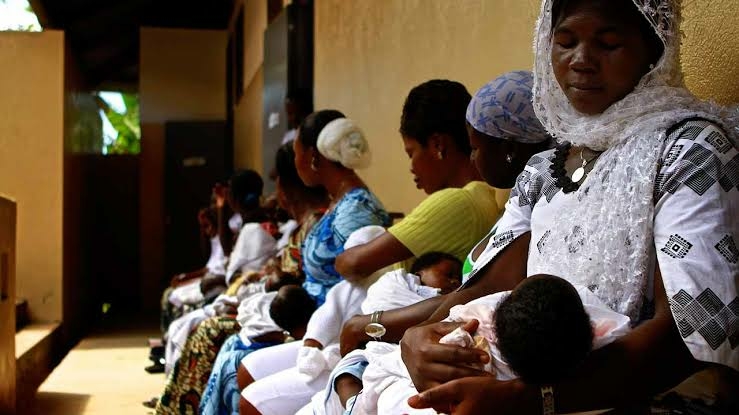Ms Ulla Mueller, the Country Representative, UN Population Fund (UNFPA) has insisted that Primary Health Care (PHC) revitalisation should include sustainable comprehensive family planning package that can be afforded by women to reduce maternal death in the country.
She made this known on Friday in Abuja at a two-day Primary Health Care Summit organised by the National Primary Health Care Development
Agency (NPHCDA) with the theme “Re-Imagining PHC in Nigeria.”
The summit aims to galvanise stakeholders to invest and collaboratively implement a PHC revitalisation strategy for the country.
It is also geared toward launching a historic programme to transform the under-resourced, weak PHC system in the country by leveraging the private sector and international agencies through government collaboration.
The UNFPA country representative, therefore, urged Nigeria to be committed to transforming its PHCs.
According to her, the transformation
must be strategic, ambitious and transformative in approach.
Mueller stated that the re-imagining PHC in the country should give Nigerians the opportunity to contribute to a healthy nation.
She added that “the summit affords the country the opportunity to be forward thinking in accelerating equitable access to all Nigerians.”
She reiterated UNFPA’s commitment to reach the most vulnerable and to deliver a world where every child birth was safe, every pregnancy was wanted and every young person
reached his or her full potential.
Dr Melissa Freeman, the Deputy Director, Health, Population and Nutrition office of the U.S. Agency for International Development (USAID), said the agency and
other U.S. agencies were also committed to supporting the country’s health system.
She added that the agencies would provide technical support to the country’s health system through the Federal Ministry of Health (FMoH) and NPHCDA.
Freeman also said that USAID activities would support country-led strategies for PHC revitalisation across the country.
Mr Kevin Tokar, the Counsellor and Head of Cooperation, High Commission of Canada, Abuja, commended Federal Government on the new National Population Policy, adding that it would provide the path forward in the country.
He said “now, it just needs the resources and attention that it deserves. And this applies to the PHCs in the country. More broadly, best lead plans and not only plans. If the resources and accountability needed to execute those plans are not there, it means we are not there yet.”
He added that it was not about the commitment but about the delivery, “and the summit is a great step in that direction.
“I hope we will all emerge from the summit with a new purpose and resolve to improve the health outcomes of all Nigerians.”
Tokar said that with a growing youth population in the country, there was an opportunity to leverage demography to strengthen the human resources for health.
Dr Jeremie Zoungrana, the Director, Bill and Melinda Gates Foundation, said that the foundation imagined a society in which everyone was entitled to live a healthy lifestyle.
Zoungrana said the foundation had always been a proponent of development, adding that “let me commend the Government of Nigeria on the ambition to revamp the healthcare system through functioning PHCs.”
He noted that the foundation was keen to supporting the country in achieving a revived PHC through increased funding and the need to
create programmes that would reach millions of Nigerians.
According to Chris Pycroft, the Development Director, Foreign, Commonwealth and Development Office (FCDO), Nigeria suffers from the burden of preventable death of mothers and children during child bearing and children under the age of five years.
Pycroft said the FCDO would be honoured to support the efforts of FMoH and NPHCDA to revitalise PHCs in the country.
NAN recalls that one of the highlights of the two-day PHC summit was that government, partners and committed Nigerians signed a pact to re-invest in Primary Health Care through the Re-imagining PHC initiative.
NAN reports that the summit brought together national elected leaders, top government officials and leading private sector executives to present ambitious and attainable plans that will lead to tangible and large-scale changes to Nigeria’s PHC system by the year 2030.

















Discussion about this post